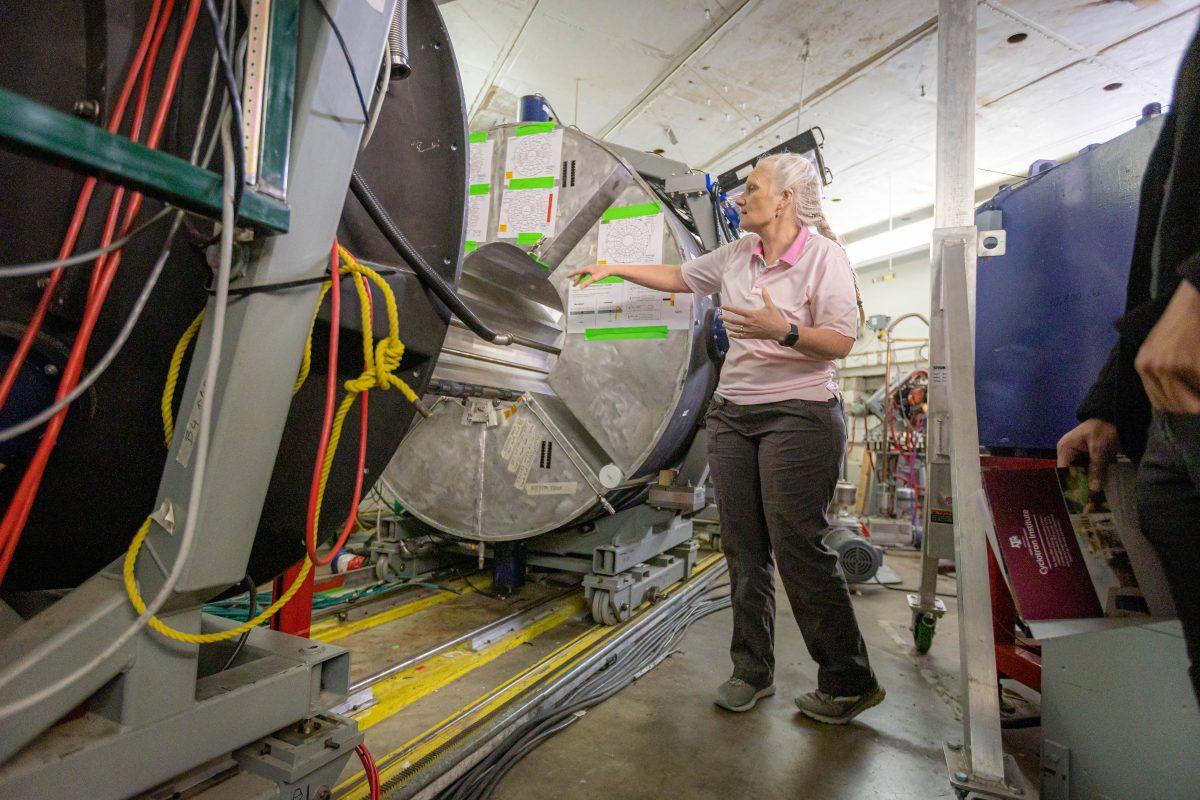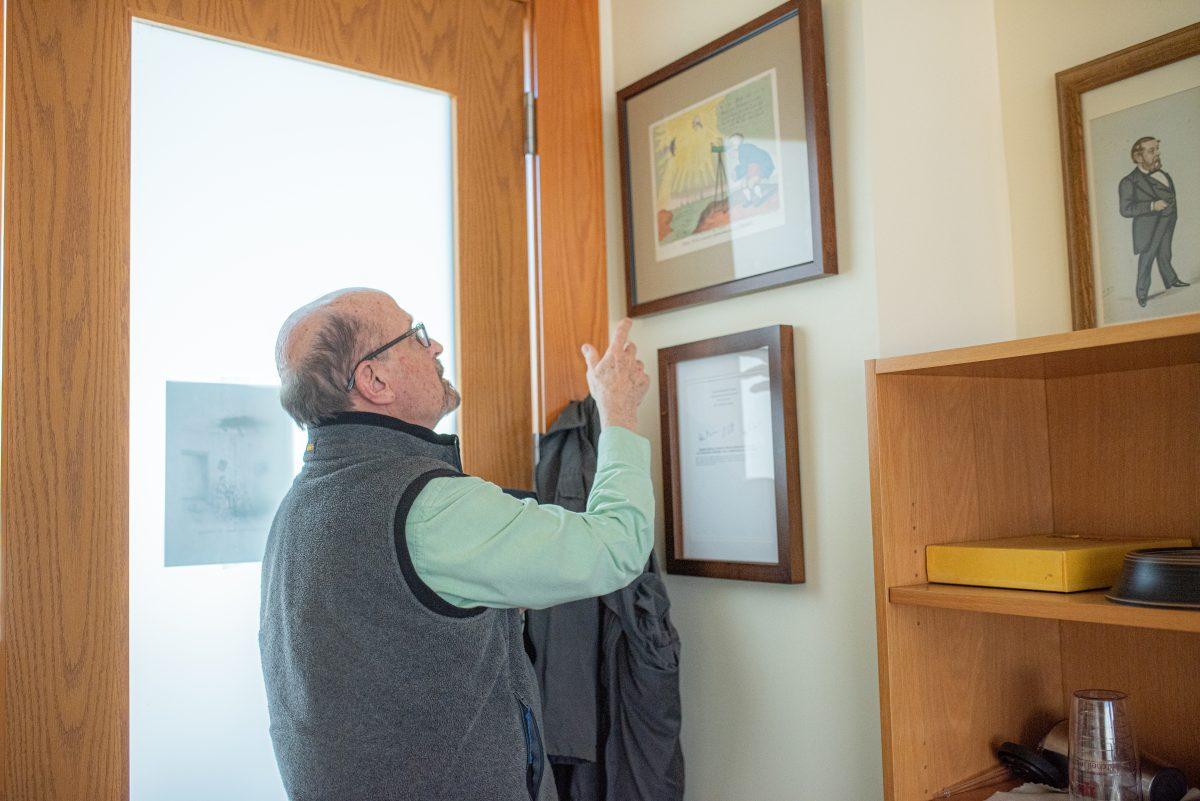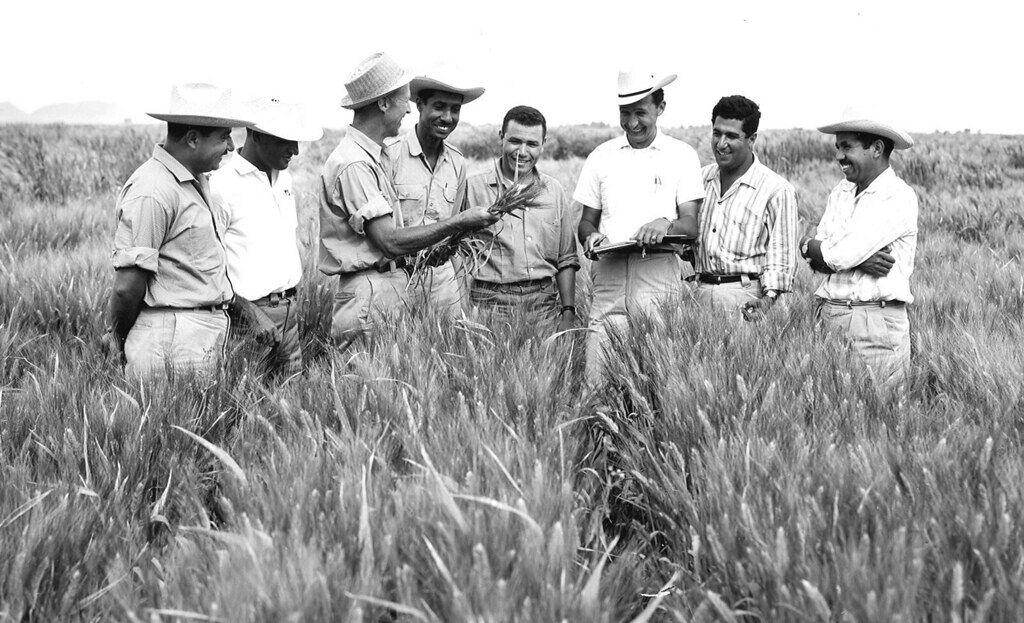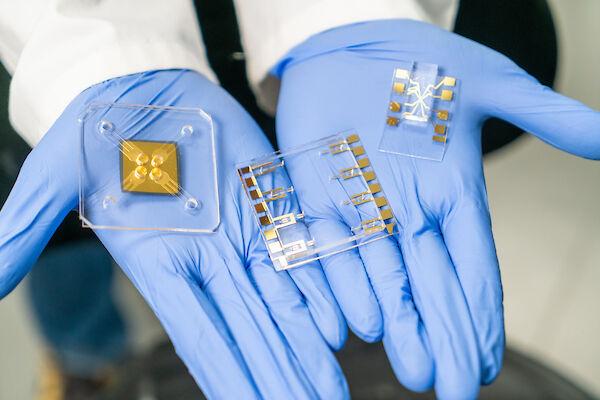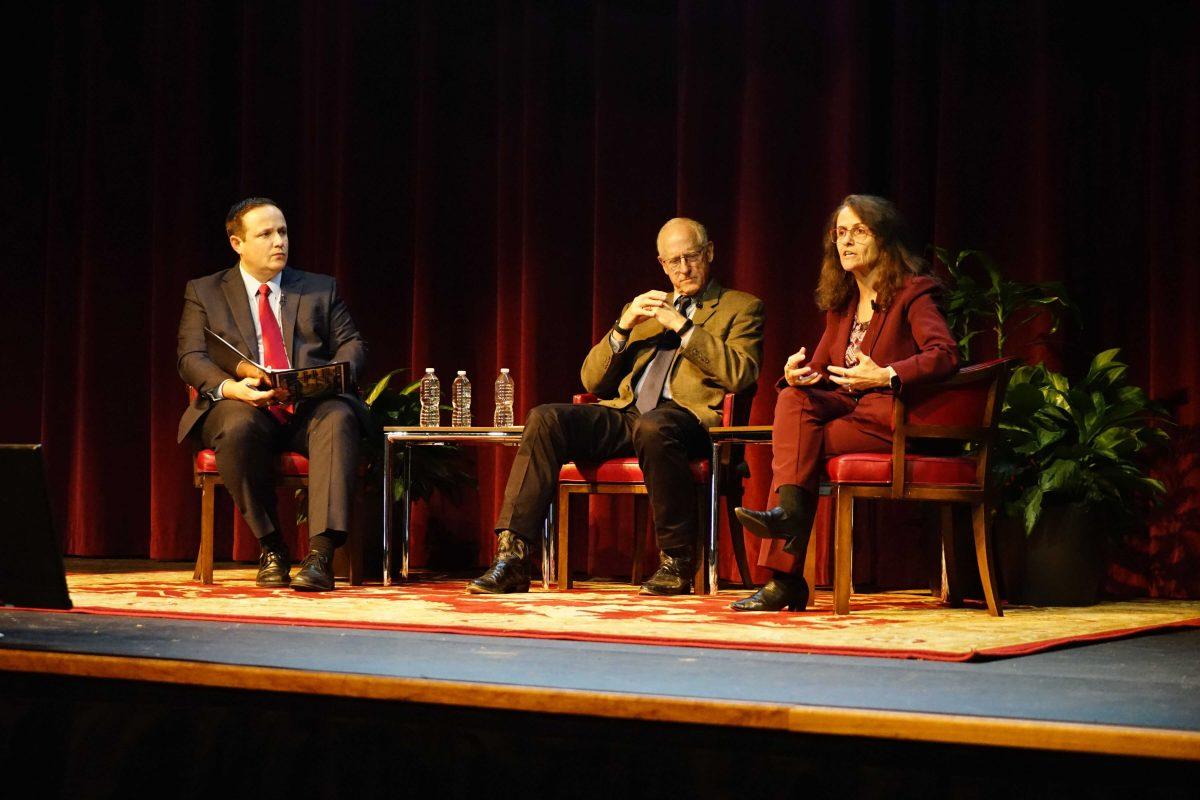Since 1985, October has been nationally recognized as Breast Cancer Awareness Month, an annual campaign created to generate awareness of the disease. A Sept. 2016 report from breastcancer.org found that one in eight women will develop invasive breast tissue in the course of their lifetime.
While death due to breast cancer is the second largest cause of cancer-related death for women, as research improves rates of death are falling and rates of remission are climbing.
Maddison Phillips, chemical engineering junior, said her family took her grandmother’s breast cancer diagnosis and tried to make it as positive as possible.
“We have chosen to take her remission and turn it into a positive thing, and go forth helping others who haven’t been as lucky. For the past five years my family has been partnering with the organization Barbells for Boobs which provides early detection mammograms for those who can’t afford it,” Phillips said. “This program has been such a cool way to serve … We help and attend events often with our grandmother, where we can hopefully enact positive change for the future.”
Although Breast Cancer Awareness month is coming to a close, researchers at Texas A&M are continuing to work hard to search for breast cancer treatment and prevention strategies. They want to put more people in remission and hear more stories of survival like that of Phillips’ grandmother.
Isabel Lambertz, a lab manager for the Texas A&M Health Science Center, searches for what factors increase or decrease risk of development of cancer tissue.
“It’s one thing to just observe something. What we are really trying to find now is ‘why is this happening?’ So you can hopefully intervene or try to fix it … Right now we are trying to figure out when is the critical time point for any change in risk. It’s a very hard study to do,” Lambertz said.
Texas A&M researcher Robin Fuchs-Young focuses on finding what contributes to breast tumor development and understanding what questions researchers need to be asked.
“We are predominantly interested in prevention, so the questions I think are important and the questions we ask are ‘why do some women get breast cancer and others don’t?’ ‘Why do some die and others don’t?’ We want to understand why some women are protected and who’s at increased risk,” Fuchs-Young said.
Fuchs-Young said the research looks at the placement of the tumor protein P-53 — a gene which functions as a tumor suppressant — and how mutations of the protein have caused variations between genes within a population.
“They are not mutations, they started that way, but they are not anymore,” Fuchs-Young said. “They are just passed along. In some cases, those variations carry with them a difference in cancer risks. There are a whole lot of these variations that you cannot see because they do not manifest themselves in what we call a phenotype. All the genes that you can’t see in a phenotype could be carrying a differential risk for cancer, as well. We study that, especially as it relates to P-53, there is a polymorphic variant in P-53 that we study.”
Lambertz said the research conducted on the mice is focused on the health of the mother and the effects of her ill health on her children.
“This basically is just to see if in utero exposure of a mother, who is diabetic or has metabolic syndrome, undiagnosed, or is obese, gets pregnant, and if there is any change in the risk of her children to breast cancer and early metabolic syndrome,” Lambertz said. “Eventually, we are also studying what the mechanisms are. It is one thing to just observe something, but what we are really trying to find out is, why is this happening, so you can eventually intervene and do something to fix it.”
The medical community has provided many options for women who struggle with their body image after breast cancer surgery. Women can have reconstruction operations or breast-saving surgery.
“One of the real challenges to breast cancer patients is when they have a mastectomy there is always an effect on their self-image,” Fuchs-Young said. “I think the scientific community is aware of it and I think it’s an issue that the medical community has responded to. In some cases they do what’s called breast-saving surgery…that is a direct response to reduce the impact of the surgery.”
The advice she has to give for those diagnosed with breast cancer is simple.
“Become educated, but live your life. This is a person to a person talking. You don’t have to track down every single study — don’t be afraid to go out and live your life,” Fuchs-Young said. “It’s good to be informed and it’s good to be educated because that gives you strength. Information is power, but also don’t forget to have some fun. That’s good advice for anybody.”
A&M focuses on beating breast cancer
October 30, 2016
Donate to The Battalion
Your donation will support the student journalists of Texas A&M University - College Station. Your contribution will allow us to purchase equipment and cover our annual website hosting costs.




















